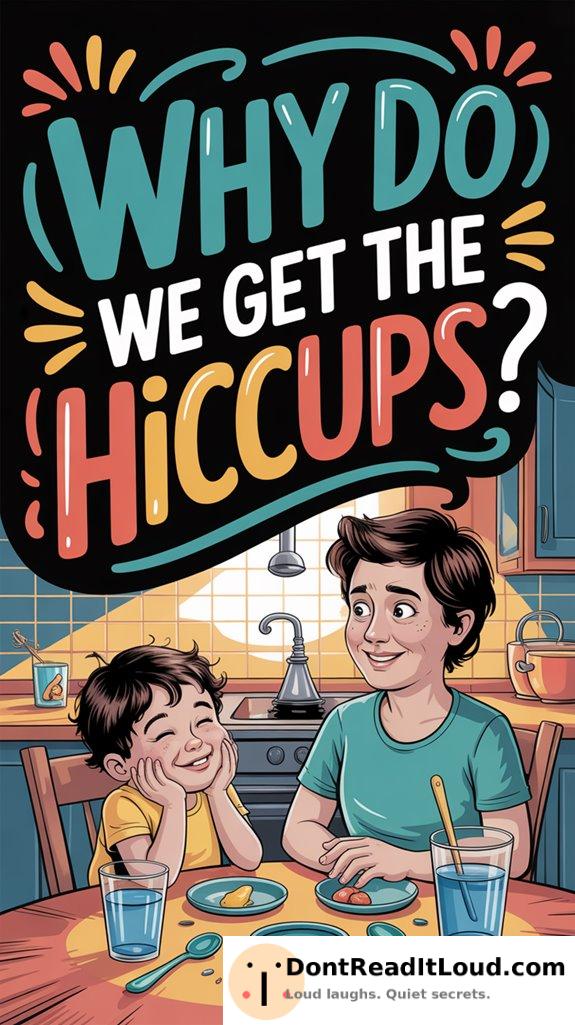
Hiccups happen when your diaphragm contracts involuntarily, interrupting your normal breathing pattern. Eating too fast, spicy foods, carbonated drinks, or stress can set off these spasms by stimulating your nerves. Some scientists think hiccups may be a leftover reflex from our distant ancestors. To stop hiccups, you might try slow, steady breaths, holding your breath, or simple distractions. Want to learn more?
The Anatomy of a Hiccup
When you get a hiccup, it’s fundamentally an involuntary contraction of your diaphragm—a muscle that sits just below your lungs. Think of your diaphragm as occasionally rebelling, disrupting your nervous system’s smooth control over your breathing.
The diaphragm acts like a bellows, assisting your lungs as they fill and empty with air. Now and then, though, it seems to get restless, almost as if it’s had too much energy and can’t stay calm.
Your nervous system works hard to keep all your body’s functions in sync. But with a hiccup, it’s as if a sudden jolt interrupts the usual rhythm of your breathing.
Common Triggers and Causes
Although hiccups may seem random, certain triggers are known to set them off. Ever had a spicy burrito that left both your taste buds and diaphragm in shock? Your dietary habits can easily invite a bout of hiccups.
Eating too quickly? That’s an easy way to give your diaphragm a surprise. And let’s not forget carbonated drinks—those bubbles are a classic hiccup trigger.
Feeling stressed lately? Emotional stress can bring on hiccups in no time. It’s almost as if your body chooses the worst moment for them.
Whether it’s spicy food or a stressful day, those little spasms always seem to show up at the wrong time.
The Evolutionary Perspective
Hiccups might seem like an annoying quirk of the human body, but they could actually be a vestige from our evolutionary past. Imagine your ancient ancestors navigating life in the primordial soup, struggling to survive. Hiccups may have helped early amphibians swallow food smoothly and avoid choking, giving them a real survival edge.
Just picture those creatures hiccupping their way to a full belly!
Millions of years later, you might get hiccups after sipping a fizzy drink. While you’re not escaping predators or catching flies, your body could be echoing its ancient roots. Who knew that something as silly as a hiccup had such a fascinating backstory?
Strategies for Stopping Hiccups
If you’re caught in the midst of an unexpected bout of hiccups, there are several strategies you can try to stop them. First, consider breathing exercises; they’re basically yoga for your diaphragm. Take slow, deep breaths to help relax your body and mind.
Or, try distracting yourself—imagine something so odd, like a unicorn in a tutu, that your mind forgets to hiccup. Alternatively, use the classic trick: hold your breath and count to ten. Just be careful not to overdo it—no need for unnecessary drama!
These methods aren’t foolproof, but sometimes a quirky approach is all you need to get rid of hiccups.
Conclusion
You’ve now explored what causes hiccups, their triggers, and even their possible evolutionary purpose. With this understanding, you can make sense of these odd spasms. When hiccups happen, you’ll also have some strategies to stop them quickly. While hiccups are generally harmless, they highlight the fascinating complexity of your body. So next time you get them, take a moment to appreciate what they reveal.



